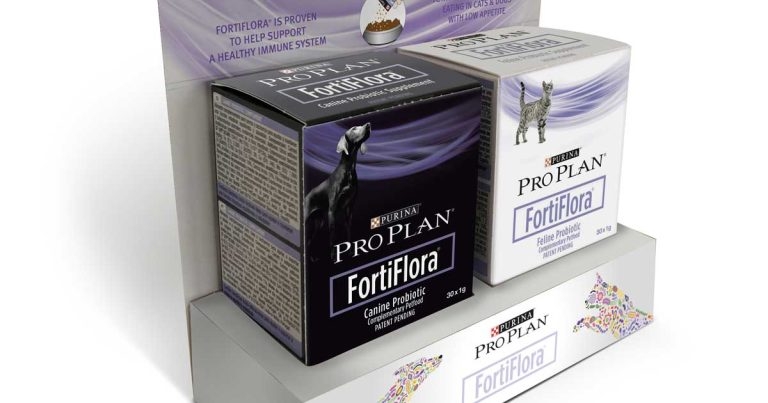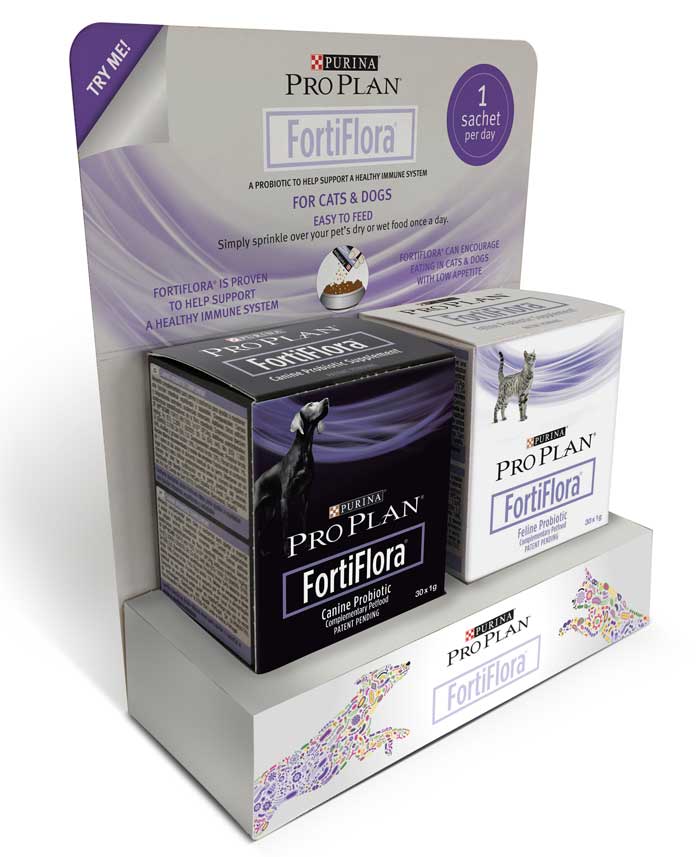27 Nov 2019
Company behind ProPlan FortiFlora range is urging veterinary professionals to assess the evidence supporting the probiotics they recommend.

Nestlé Purina PetCare is offering practices a complimentary countertop unit and pillow packs to help veterinary professionals communicate the benefits of probiotics to clients.
The company is also encouraging veterinary surgeons and RVNs to look at the evidence supporting the use of probiotics they recommend.
 Purina stated: “Studies carried out on diets claiming to contain probiotics have previously found that they generally did not meet the label claim when evaluated1,2.”
Purina stated: “Studies carried out on diets claiming to contain probiotics have previously found that they generally did not meet the label claim when evaluated1,2.”
Libby Sheridan – Purina veterinary technical affairs manager, UK and Ireland – said the efficacy of probiotics was thought to be strain specific3, and recommended clinicians critically assessed the evidence for the particular strain and preparation of probiotics stocked or used.
She said: “The quality and efficacy of probiotics can vary and, while in some cases there is strong evidence for efficacy in the targeted species, for others, the evidence is scant.
“Having experienced it myself, I know it’s not always easy when working in a busy practice to take the time to ensure the evidence is there, but the studies back up that we should assess these things carefully before making a robust recommendation to our clients.”
Most antibiotics in the veterinary channel use the lactic acid bacterium Enterococcus faecium. The particular strain and preparation of any probiotic will affect its ability to reach the large intestine, the expected site of action, intact, said Purina.
It said the evidence for the SF68 strain of E faecium has been validated in a number of studies4-11, with proven benefits focused on the gastrointestinal system and supporting a healthy immune system.
Purina’s countertop unit can hold a cat and dog 30-sachet box of Purina ProPlan FortiFlora, which contains the SF68 strain of E faecium. The pillow packs are able to dispense single sachets, so the client can trial it easily at home.
To obtain a unit or discuss the science, contact your Purina veterinary nutrition partner or telephone the nutrition team on 0800 212161 quoting code VETPRESS.